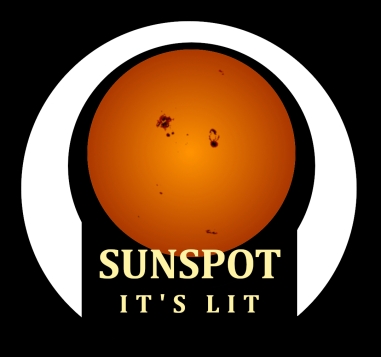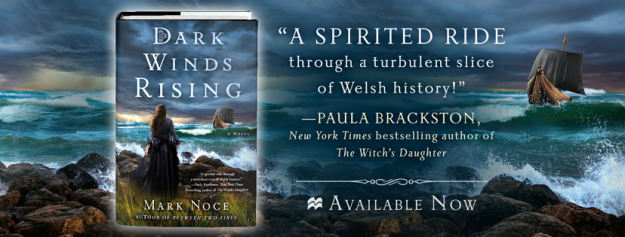On August 11, this blog will post a review of Secure the Shadow, the latest novel from Marion Grace Woolley. Author of such deliciously dark tales as Those Rosy Hours at Mazandaran, Woolley is offering a few free copies through this blog. The free copies will be available to the first five people who contact the blog during the days after the review posts. Today, the author joins us for an interview about her work.
Tell us something about yourself and how you became an author.
Hi, sure.
I’ve always been an avid reader, and enjoyed writing stories growing up, but it wasn’t until I moved to Rwanda as a sign language researcher in 2007 that I made a serious attempt at writing a novel. Back then, books were quite hard to find, I didn’t have a telly or a radio, and the internet was too slow to stream movies. There really wasn’t much to do in the evenings, so I thought I’d take a shot at writing a novel, just to see whether I could make the word count. Once I discovered that I could, it became a bit of an addiction, and I’ve been writing ever since.
I still live in Rwanda, where I currently work with organisations helping those who survived the 1994 Genocide against the Tutsi, and in my spare time I’m trying to build the first Rwandan piano with my friend Désiré.
I now have a bookshelf and the internet is fast enough to stream movies, but I continue to write novels now and then.
Which books stand out for you as a reader?
As a very young child, I think Puddle Lane took the prize. They were short fairy tales that had a page for the adult to read and then a short sentence for the kid to read. My dad always made me read out loud before he’d turn the page. So, I have fond memories of learning to read with him.
In my teens, I was a Fighting Fantasy, Terry Pratchett and horror buff. I loved Shaun Hutson, Stephen King, anything with blood and gore.
Nowadays, I read a lot more non-fiction. Yuval Noah Harari, Peter Frankopan and Bill Bryson, but also a lot of fiction, usually more on the literary side like Carlos Ruiz Zafón, Chitra Banerjee Divakaruni and Madeline Miller, but also some silly stuff like Yahtzee Croshaw. He wrote an entertaining story about the world being taken over by man-eating strawberry jam.
Is there a writer whose brain you would love to pick for advice?
Not so much. I feel like I know what I’m doing nowadays. I’ve kind of got to that stage where I realise the things that bug me, and I find difficult, are mostly the same things all writers struggle with. There really isn’t a magic answer to a lot of things, like character development and plot block, we’re all just stumbling through it the best we can.
I’ve been very lucky in that my family used to take me to the Cheltenham Literature Festival most years, so I got to sit and listen to a lot of the greats, like Ken Follet, Philip Pullman, Lionel Shriver and Ian McEwan. I was able to hear a lot of their advice first-hand.
A lot of other writers have made their brains freely available to pick, or at least leaf through. Aristotle, Stephen King, Adrian Magson and many others have written books on writing. In Stephen King’s case, literally On Writing.
Being a writer is pretty solitary. You’re the only one who can hear those imaginary voices in your head and tell the story you dreamed up. Sure, you can discuss it with people, but that doesn’t get it written any quicker. You sort of learn to become quite self-reliant.
If you could, which fictional character (from your own book(s) or someone else’s) would you like to invite for tea and why?
I’ve been rather smitten with Alicia Gris from Labyrinth of the Spirits recently, but I’m not sure how much tea we’d get drunk. Just a very dark and enjoyable character. I’d like to see her perform her fountain pen trick on a buttered scone.
Anybody a little bit magical would be entertaining company. Howl, if I could pluck him from his moving castle, or Chrestomanci. I’m a sucker for a smoking jacket.
There are just too many to choose from.
Do you have some writing rituals or habits?
No. I’m useless at routine, and whenever I try to stick to one, the universe usually has other ideas. Writing is a chaotic process, so I prefer to embrace the chaos.
Where do you come up with your ideas? Do people in your life need to be worried? 😉
Neil Gaiman did a good interview where he said, ‘never ask a writer where they get their ideas.’ Honestly, I don’t know. You can have an idea any time of the day or night. Riding on the bus, walking across a park, staring at your navel. There are hundreds of ideas all over the place. The question is, which one is going to make it to 100,000 words?
That’s always the issue. Not every idea has the longevity to be interesting for more than a couple of pages. Most stories are a hotchpotch of lots of different ideas, and when you start to run thin on ink, it’s time to throw another idea in there and keep writing. Usually, you need a collection of ideas to produce a full-length novel.
But many of those ideas come to you once you start writing. Stories are fluid. Half the fun is discovering the story as you’re writing it, which means new ideas can ambush you along the way.
If I were a memoirist, I’d write about people I know, but as I write fiction, I’m wholly devoted to those I make up. For me, fiction is escapism, I’d hate to pollute it with reality.
Can you offer any tips for writers?
Nothing more than other, much more famous, writers have said: read a lot, read as widely as you can, expect the first few stories you write to be dreadful, but learn from them.
To paraphrase Labyrinth of the Spirits: ‘Writing is a profession that has to be learnt, but it’s impossible to teach.’
Grammar can be taught, sentence structure and plot construction can be taught, but what makes a story work – that’s more art than science, and it just takes time.
What are your future plans?
I’m currently working with a fantastic group of actors to turn my epic The Children of Lir into an audiobook. It’s been wonderfully creative and a real treat to be part of something so collaborative. I’m also self-narrating The Tangled Forest, a collection of dark fairy tales I wrote a few years back. That’s proving more of a challenge. Despite having written the book, I’m actually finding it pretty tricky to read out loud. In between, I’m doing a little light research for another novel, set in ancient Akkad. So, lots of fun things on the go at the moment.
Excerpt from Secure the Shadow
Reuben took a piece of white paper and a brush, painting its surface with silver nitrate. Then he placed the silhouette over the top and took it into the hallway, exposing it to the full force of a carbon arc lamp. As he did so, the paper began to darken until it was the same black as the silhouette. He peeled the top layer away to reveal Bella and Archie, their outline wedding-white like fallen snow.
“A photogram,” Reuben explained. “The earliest form of photography. From photo, meaning light, and gram, meaning drawing. A light drawing.”
“But why did you choose to make one of–”
“Watch.”
As they stood looking at the simple play of shadow on sun, the white image began to fade. At first, just the edges started to fray. Then, piece by piece, the entire picture began to turn black. Archie and Bella, and their archway of ribbons, darkened until there was nothing left of them.
“Gone,” Reuben whispered, looking down at her. “How do you feel?”
“Better, I think.”
“A life that might have been, but never was. Captured for a moment, then returned to history.”
“A clever trick.”
He kissed her gently on the cheek.
Check out this cool blog post for readers and writers!






 ublication is accepting fiction, poetry, nonfiction, scripts, screenplays, photography, and art until November 30. Translations and extremely long-form pieces are accepted. Submit
ublication is accepting fiction, poetry, nonfiction, scripts, screenplays, photography, and art until November 30. Translations and extremely long-form pieces are accepted. Submit  Reedsy, a huge freelancer’s site, selected
Reedsy, a huge freelancer’s site, selected  Sunspot Literary Journal wants your best fiction, nonfiction, or poetry opening. No restrictions on theme, category, or length of the piece from which the beginning is excerpted.
Sunspot Literary Journal wants your best fiction, nonfiction, or poetry opening. No restrictions on theme, category, or length of the piece from which the beginning is excerpted.
 June of 2019 will see the last Tin House literary magazine roll off the presses. After twenty years publishing original fiction, nonfiction, and poetry, Tin House is saying goodbye.
June of 2019 will see the last Tin House literary magazine roll off the presses. After twenty years publishing original fiction, nonfiction, and poetry, Tin House is saying goodbye.
 Finally, finally, the wait is over! You can–if you haven’t already–get a copy of Dark Winds Rising, the second in the epic historical series about a Welsh queen who stepped into her power in order to help her people.
Finally, finally, the wait is over! You can–if you haven’t already–get a copy of Dark Winds Rising, the second in the epic historical series about a Welsh queen who stepped into her power in order to help her people.
 Aleksandar Tomov has done several videos for my books. Two are traditional trailer videos that focus on the books. The first novel,
Aleksandar Tomov has done several videos for my books. Two are traditional trailer videos that focus on the books. The first novel,  In
In 